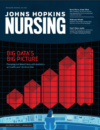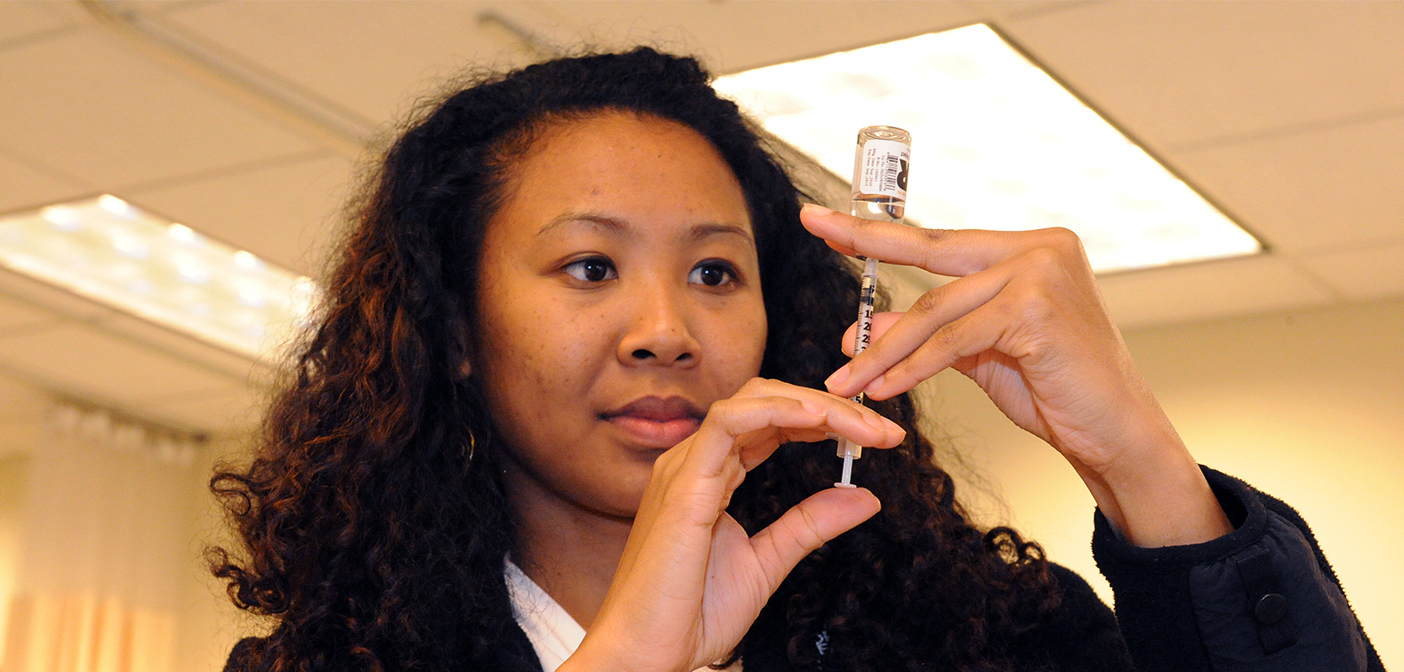It’s common for people to approach me as dean to ask about my vision for the future. The truth is, the vision—our vision—never changes. It’s the same as it was when the doors of this institution first opened: Be the best nursing school in the world and create critical thinkers and leaders in the field. What changes are the strategies used to achieve those ends.
This issue features several such strategies in action, beginning with the cover story on big data and how our doctor of nursing practice (DNP) students are using hard evidence and whip-smart ideas to tackle complicated healthcare problems across the United States.Then there is the PhD Learning Lab, doctoral graduates mentoring those following in their footsteps. And as always, there are stories of nurses being heard, setting the tone at a time when that matters so much.The Institute of Medicine report on The Future of Nursing sends a stark message about the critical shortage of nurses today, when:
- The Affordable Care Act adds 32 million newly insured patients to those already seeking care.
- One third of current MDs are expected to retire over the next 10 years, causing the physician deficit to grow from 7,000 to as high as 100,000 across all specialties.
While daunting, these factors represent a tremendous opportunity for nurses to step up more and more in primary care, locally and globally, despite our own challenges:
- The median age of a nurse is 46, and some 900,000 nurses over age 50 (of 3 million total nurses) will need to be replaced by 2020.
- The Health Resources and Services Administration (HRSA) estimates a nursing shortfall of 1 million by 2020. More conservative estimates put the number at “only” 260,000 by 2025. For comparison, the last great nursing shortage peaked in 2001 at 126,000. So we face a situation doubly as bad (conservatively) as anything we’ve ever experienced.
The need for advanced nursing will expand whether we’re prepared or not. We need a larger, better educated national nursing workforce to meet the complex healthcare needs of the coming decades. Nurses should be ready and able to practice“The truth is, the vision—our vision—never changes … Be the best nursing school in the world and create critical thinkers and leaders in the field.”at the top of their licenses, and nurse practitioners should continue to establish their vital role. We must be culturally competent and sensitive, and so you will meet instructor Sarah Dutton, whose Spanish classes here at the school have for more than a decade helped Hopkins nurses comfort non-English speakers and clear barriers to care at the bedside. We need to make better use of resources and find ways to provide the same quality care at a time when there is tremendous pressure to keep costs down.
It will take smarts, a desire to remain the best nursing school in the world, and a continued thirst to be leaders in all things nursing. It will take strength, not to mention nerve.
Fortunately, we have more than a little of all that stuff around here. Please enjoy the Spring 2015 issue.Patricia M. Davidson
PhD, MEd, RN
Dean, Johns Hopkins School of Nursing

